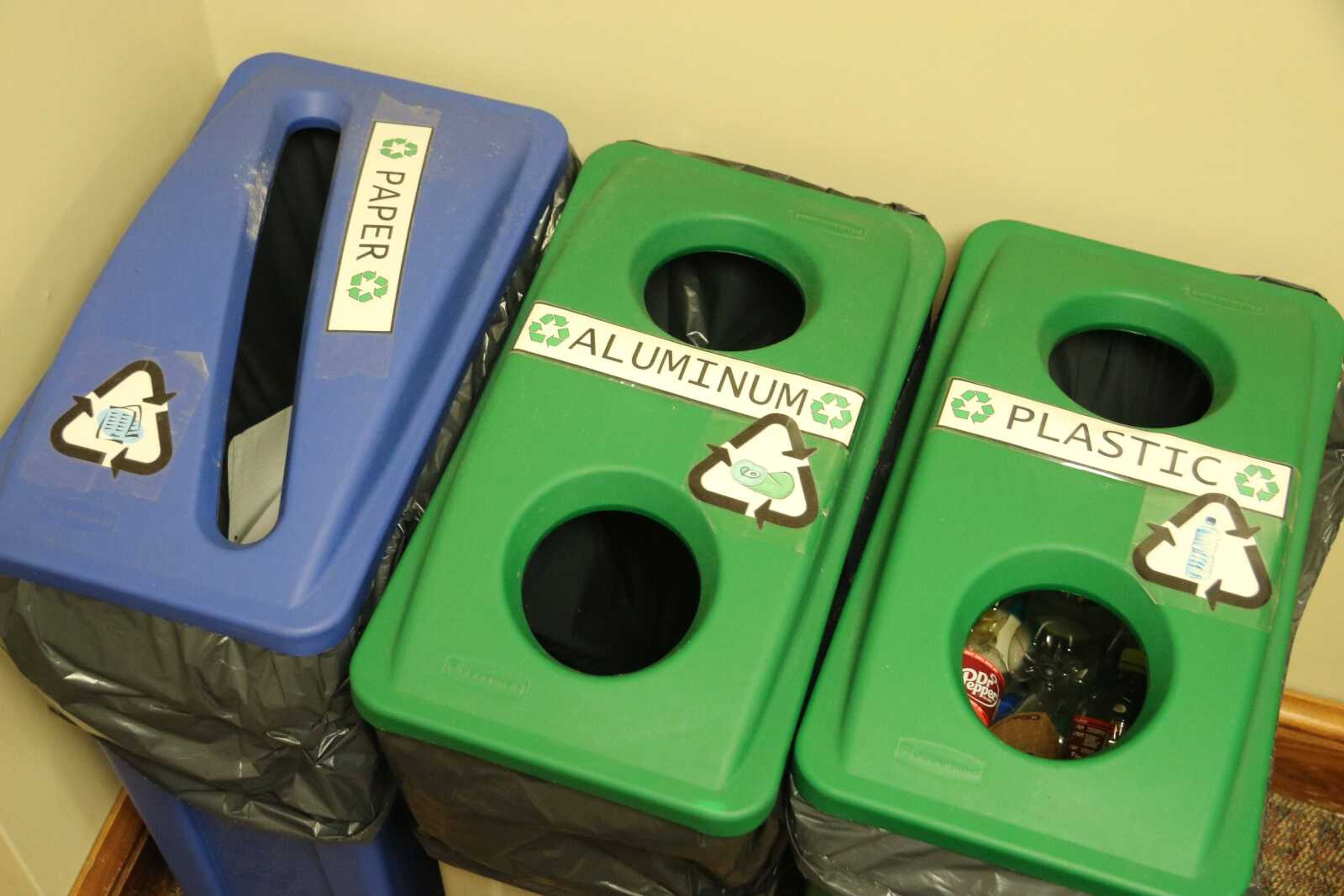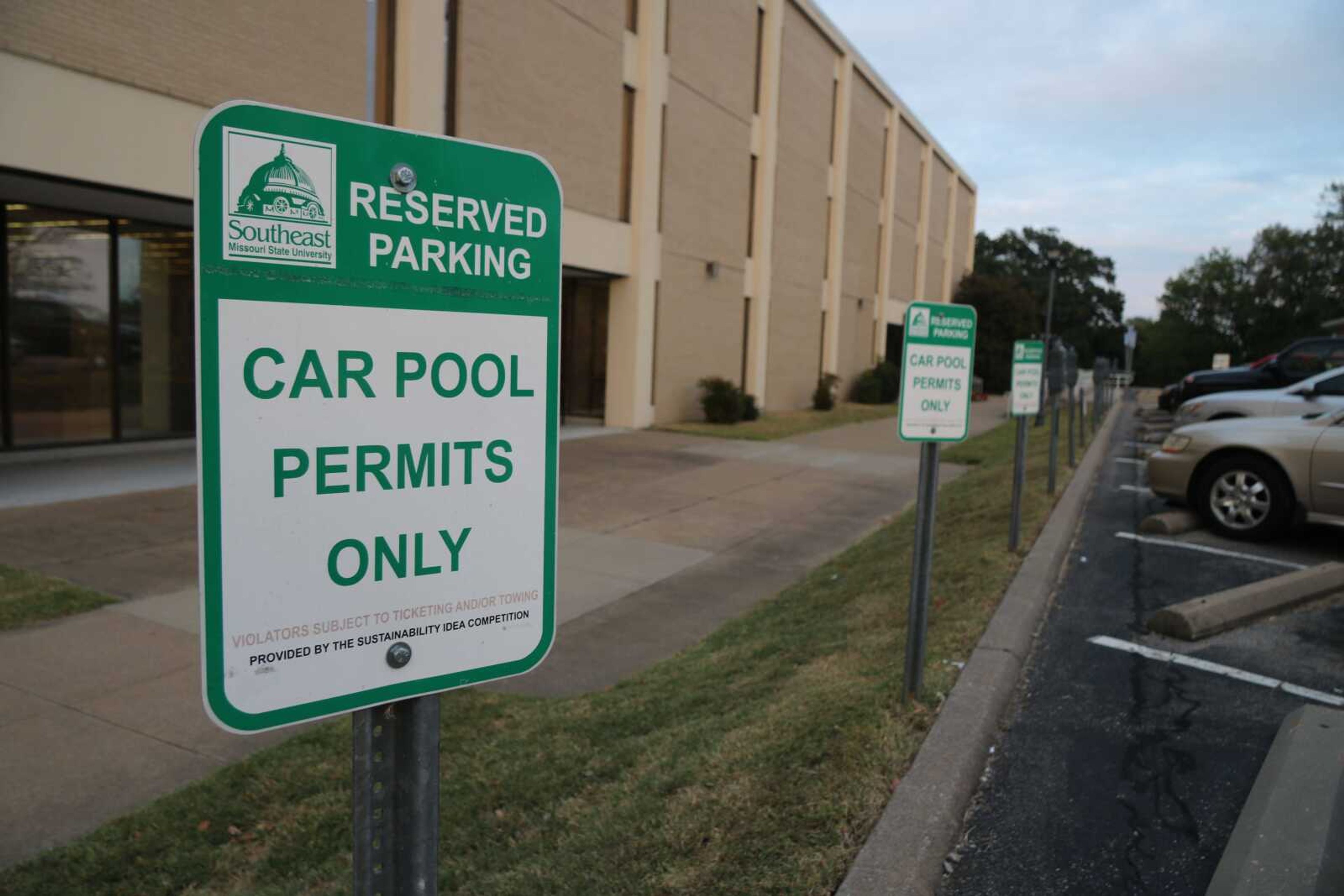President Donald Trump spent his first several months in office following up on campaign promises, one of which was to exit the Paris Climate Agreement. Recently, members of the Southeast community have been working to combat this change.

While on his campaign trail, Trump called climate change a hoax and the regulations of Paris “stifling to American growth,” according to the Associated Press.
In June Trump announced that the United States would withdraw from the Paris Climate Agreement and stop implementation of the non-binding parts of the agreement immediately. The actual process of pulling out of an international treaty can take several years.
In light of Trump’s decision to withdraw from the agreement, members of the Southeast community are stepping up to become “better stewards of our environment and our resources,” Southeast professor Jim McGill said.
McGill announced at the Student Government meeting on Sept. 25 the revamping of a sustainability committee to be more conscientious of ways to protect the environment through shared goals across several campus clubs.
The resolution, he said, was brought forth by two members of the Faculty Senate, Debbie DiStefano and Courtney Kisat. He added that the senate discussed several points of the resolution, including which student organizations and university committees might be involved in the implementing the goals of sustainability.
While the sustainability committee was already in place, McGill said it “has not been particularly active for a few years.”

McGill said he invited Student Government Senators who were passionate about the issue to participate in hopes that it would begin a conversation toward making campus more environmentally focused.
The Paris Climate Agreement is the world’s predominant effort to slow the effects of global warming, and as the United States is the second largest emitter of carbon, the results have environmental science experts worried.
“Calculations suggest withdrawal could result in emissions of up to 3 billion tons of additional carbon dioxide a year — enough to melt ice sheets faster, raise seas higher and trigger more extreme weather,” the Associate Press reported.
Extreme weather has surely been felt all over the world, particularly in the Atlantic Ocean and Caribbean Sea.
Shortly following August’s devastating Hurricane Harvey, September has been named by the Weather Channel as the most active month of Atlantic hurricane season on record, seeing the likes of hurricanes Irma, Jose and Maria.
The Paris Climate Agreement fostered worldwide efforts to combat global warming, and the United States’ withdrawal joins only Syria as an outsider to the agreement.
Trump’s decision to exit the agreement brought alarm to many of America’s allies and was opposed by several of his top aides, according to the Associated Press.
Because the decision has been divisive, members of the Southeast Faculty Senate, McGill said, want the committee to be as “non-political” as possible to give all their focus to “things we can all agree on — doing the right thing for our environment.”
“We want to focus on those things that can unite us in a positive cause and avoid anything that might divide us along political, ideological or other lines,” McGill said. “We want to be positive and inclusive of everybody because we feel that we are most effective when we are one as a university community.”
Southeast currently has many initiatives for sustainability in place, such as a recent update from coal-fired burners to natural gas-fired burners to reduce the emission of carbon dioxide.
The campus also encourages carpooling with the implementation of designated parking decals and reserved parking spaces “available only to members of the campus community that share a ride to the university,” according to the university website.
While there are some initiatives already in place, McGill and other members of the Southeast community have recognized the need to start a conversation that he hopes will lead to a “strong resolution and a commitment to back it up with practical actions” for the future of sustainability at Southeast.
For more information on current initiatives for sustainability, students should visit http://www.semo.edu/sustainability/current.html or contact McGill at jmcgill@semo.edu.





